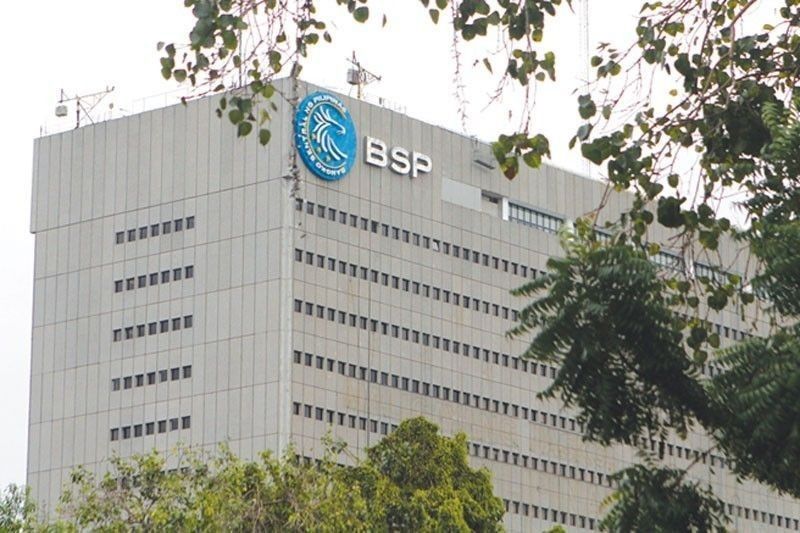BSP threatens to name erring banks, executives

To Instill market discipline
MANILA, Philippines — The Bangko Sentral ng Pilipinas (BSP) is looking at publicizing the names of erring banks and their directors, officers and employees to promote market discipline as the regulator continues to advocate financial consumer protection amid the COVID-19 pandemic.
The central bank’s Financial Supervision Sector (FSS) is finalizing the framework on the publication of administrative enforcement actions and criminal cases against BSP-supervised financial institutions (BSFIs).
“This is a means to inform the public and the financial industry of the consequences of the failure by concerned BSFIs and directors, officers, and employees in meeting the BSP’s requirements and expectations on good governance, sound risk management, and prudent banking operations,” the BSP said.
The notes on the proposed framework was posted on the BSP’s website.
The regulator added the publication would also discourage other stakeholders and financial industry participants from engaging in similar misconduct.
It said the publication of enforcement actions and criminal cases encourages greater consciousness and responsibility on the part of the BSFIs as well as their directors, officers and employees on the propriety of their actions and promotes collective accountability within a financial institution in ensuring adherence to standards and observance of proper conduct and behavior.
On the part of the BSP, this promotes transparency and strengthens accountability in its actions.
“The regulatory relief measures adopted by the BSP to alleviate the impact of the COVID-19 pandemic on the financial system and its clients should not be viewed as a relaxation of the BSP’s supervisory enforcement posture, especially if a financial institution’s activity or business would hinder the achievement of the BSP’s objectives,” the BSP said.
The BSP said it remains steadfast in its commitment to ensure the stability of the financial system and promote financial consumer protection, especially amid the global health pandemic.
The BSP is authorized to impose enforcement actions against BSFIs as provided under Republic Act 7653 or the New Central Bank Act as amended by RA 11211, RA 8791 or the General Banking Act and other banking laws, rules and regulations.
The regulator is also empowered by RA 7653 to disclose or publicize administrative enforcement actions on erring banks although considered confidential information under Sections 16 and 27 of the said law.
Section 16 of RA 7653, as amended, allows the disclosure of confidential information if the disclosure is in connection with the performance of official functions of the BSP, or is with prior authorization of the central bank’s Monetary Board.
Likewise, Section 27(c) grants express powers to the Monetary Board to allow BSP personnel to reveal confidential information in any manner under such conditions it may prescribe and authorizes any person in writing to receive confidential information and the BSP Governor to authorize (in writing) any person to receive confidential information.
In its Privacy Policy Office Advisory Policy Opinion 2018-040 titled “Publication of Names of Sanctioned Directors and Officers of BSP-Supervised Financial Institutions,” the National Privacy Commission (NPC) has unqualifiedly stated that the Data Protection Act would not operate to hinder the BSP from disclosing certain information it deems crucial for the information of the general public, anchored on its mandate to maintain financial stability.
NPC stated the business of banking is imbued with public interest. The stability of the banking industry largely depends on the confidence of the people in the honesty and efficiency of banks and the people managing the banks.
The agency said the central bank has a legitimate purpose in making the public aware of sanctions imposed by BSP through its publication.
The BSP currently publishes enforcement actions through the issuance of circular letters to inform all banks and BSFIs of the names of banks that are prohibited from doing business in the country.
It also informs the public of a suspension of the special authorities granted to BSFIs through its inclusion from the list of banks or through published press releases on its website.
The regulator issues press releases in case of court convictions against certain officers of banks on criminal cases filed by the central bank and in case of extraordinary administrative enforcement actions imposed on BSFIs for cases deemed systemic in nature that could affect the stability of the financial system or impair the public’s trust and confidence in the banking system.
“The purpose of the publication is to provide the public with objective information on the issue/situation and assure that steps are being undertaken to prevent further escalation or recurrence of the issue,” the BSP added.
Under the proposal, the BSP’s FSS would publicize enforcement actions administratively imposed by the central bank with finality on BSFIs, while the Office of the General Counsel and Legal Services would publicize administrative and criminal cases filed against erring directors, officers and employees after filing of criminal complaint with the Department of Justice or after determination of probable cause by the Justice department and upon filing of information in trial courts.
- Latest
- Trending





























